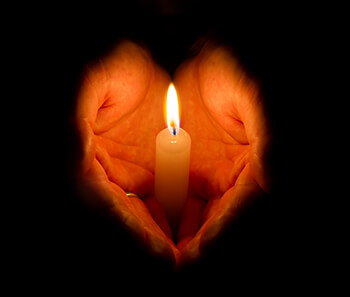 We’ve all witnessed the devastating effects of tragic events in our communities and the world around us- natural disasters, mass shootings, terrorist attacks. While some of us may have been directly affected, others have been indirectly impacted. One thing these unfortunate events have in common is the power to unite us in an effort to support those victims and their families with prayer, financial contributions, much-needed supplies, even traveling to the affected areas to participate in recovery efforts.
We’ve all witnessed the devastating effects of tragic events in our communities and the world around us- natural disasters, mass shootings, terrorist attacks. While some of us may have been directly affected, others have been indirectly impacted. One thing these unfortunate events have in common is the power to unite us in an effort to support those victims and their families with prayer, financial contributions, much-needed supplies, even traveling to the affected areas to participate in recovery efforts.
Never has it been so easy to get information and provide assistance in a variety of ways with the click of a button. Whatever method we choose to reach out and give back, the goal is to restore hope that brighter days are ahead. I received an email from my son's art teacher today informing parents that the art teacher at Marjory Stoneman Douglas High in Parkland, Florida requested uplifting artwork and messages to fill the hallways so students will be met with love when they enter the building. This exercise has the potential to help those students and give our students a way to process their own feelings about the tragedy.
As uneasy as it makes us feel, the reality is we can’t always predict when or where the next disaster will take place. However, we can be prepared depending on the situation- stock up on supplies, evacuate the area, alert authorities of suspicious behavior. It’s normal to feel vulnerable or anxious for a while; the effects vary from one person to the next depending on our prior experiences with traumatic events in our own lives. It’s possible for someone to be completely unaware of how deeply they’ve been impacted, especially if they have unresolved issues in their past. Observing images on the news or other media outlets may trigger an unexpected response, signaling that there may be some underlying issues that need to be addressed.
It’s important for us to take care of ourselves and each other during and after a crisis. It’s also important to establish healthy habits and relationships on a regular basis to strengthen our resilience, which helps the recovery process after an event. Here are some tips from the American Psychological Association to guide you on your journey towards building own your resilience:
-Make connections. Good relationships with family and friends are important. Accept help and talk to people who care about you.
-Avoid seeing crises as insurmountable problems. Stressful events will happen, but you have the power to change how you interpret and respond to these events. As you look beyond the present to the how future circumstances may be a little better, note any subtle ways you might already feel better along the way.
-Look for opportunities for self-discovery. Many people who have experienced tragedies have reported better relationships, greater sense of strength even when they feel vulnerable, a more developed spirituality and increased appreciation for life.
-Maintain a sense of hope and keep things in perspective. An optimistic outlook enables you to expect that good things will happen in your life. Try visualizing what you want, rather than worrying about your fears.
-Pay attention to your own needs and feelings. Engage in activities that you find enjoyable and relaxing. Exercise regularly to keep your mind and body primed to deal with situations that require resilience.
-Explore other ways that you find help build your resilience such as journaling, meditation and spiritual practices.
Whether you’ve experienced trauma or decide to assist those who have, remember it’s important to take care of yourself and focus on the things that are in your control. The key is to find ways that work well for you to establish your own resilience strategy.
If you or a member of your household is struggling to recover from a crisis, help is just a phone call away. The Methodist Healthcare EAP is staffed with licensed counselors who offer support in a confidential setting, free of charge. Please call 901-683-5658 to schedule an appointment to speak to counselor.
 Karole Shorter is a Licensed Clinical Social Worker and Certified Employee Assistance Professional with over 15 years of counseling experience. She earned her Bachelor’s in Social Work from Florida A & M University in 1995 and her Master’s in Social Work from Florida State University in 1998. She has been a counselor at Methodist Healthcare EAP since 2006.
Karole Shorter is a Licensed Clinical Social Worker and Certified Employee Assistance Professional with over 15 years of counseling experience. She earned her Bachelor’s in Social Work from Florida A & M University in 1995 and her Master’s in Social Work from Florida State University in 1998. She has been a counselor at Methodist Healthcare EAP since 2006.
